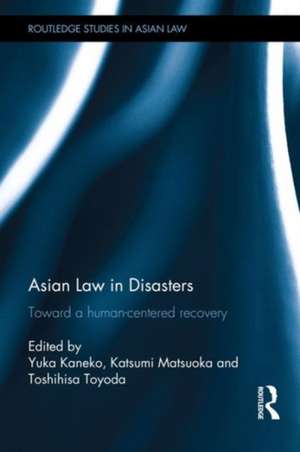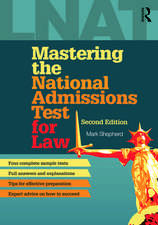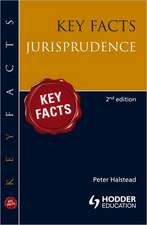Asian Law in Disasters: Toward a Human-Centered Recovery: Routledge Studies in Asian Law
Editat de Yuka KANEKO, Katsumi MATSUOKA, Toshihisa TOYODAen Limba Engleză Hardback – 12 mai 2016
With particular emphasis on the unexplored area of law in the post-disaster recovery phase, this book will attract the attention of students and scholars of disaster studies, legal studies, Asian studies, as well as those who work in the practice of disaster management.
Preț: 1332.52 lei
Preț vechi: 1625.03 lei
-18% Nou
Puncte Express: 1999
Preț estimativ în valută:
254.99€ • 272.66$ • 212.60£
254.99€ • 272.66$ • 212.60£
Carte tipărită la comandă
Livrare economică 17 aprilie-01 mai
Preluare comenzi: 021 569.72.76
Specificații
ISBN-13: 9781138930636
ISBN-10: 1138930636
Pagini: 348
Ilustrații: 34
Dimensiuni: 156 x 234 mm
Greutate: 0.61 kg
Ediția:1
Editura: Taylor & Francis
Colecția Routledge
Seria Routledge Studies in Asian Law
Locul publicării:Oxford, United Kingdom
ISBN-10: 1138930636
Pagini: 348
Ilustrații: 34
Dimensiuni: 156 x 234 mm
Greutate: 0.61 kg
Ediția:1
Editura: Taylor & Francis
Colecția Routledge
Seria Routledge Studies in Asian Law
Locul publicării:Oxford, United Kingdom
Cuprins
Introduction
Part I: Typology of Asian Disaster Law: From the Developmental State Model to Forward
Part I: Typology of Asian Disaster Law: From the Developmental State Model to Forward
- Lessons from the 2011 East Japan Earthquake: Issues of Participation and Early Recovery
- Natural Disaster Relief in China: Experiences and Shortcomings in the 2008 Wenchuan Great Earthquake and Thereafter
- The Shift From Healer State to Protector State in a 500-year Period: A Critical Evaluation of Painful Development Struggles in Legal and Administrative Understanding of Disaster Management Strategies in Turkey from 1509 to 2010
- The Legal Framework of Community-Based Land Administration in Tsunami-Impacted Areas of Aceh
- Roles of Laws Relating to Post-2004 Tsunami Management in Thailand
- Building Back Better: Disaster Rehabilitation and Recovery in the PhilippinesPart II: Aid, Compensation, or Insurance?: In Sought for Effective Institutional Basis for Early Recovery
- Legislation to Support to Disaster Victims in Japan
- Compensation or Assistance? Law and Policy for Post-disaster Housing Recovery in the U.S and Japan
- Lessons from the Canterbury Earthquakes: Adequacy of a first loss insurance scheme for natural disasters
- The Divided Fate of Victims after the Fukushima Nuclear Power Plant Accident
- The Role of the Legal Services after the 2011 East Japan Great Earthquake and TsunamiPart III: Redefining the Recovery: Law for Human-Centered Recovery vs. Build Back Better
- Lessons Learned from a Comparison of the 2011 Great East Japan Earthquake and the 1995 Great Hanshin-Awaji Earthquake
- "Promptness" in Housing Reconstruction in the Post-2011 Great East Japan Earthquake Recovery
- The Complexities of Land Acquisition and Zoning after the Canterbury New Zealand Earthquake
- A Comparative Approach to the Post-2001 Gujarat Earthquake Recovery in India
- Post-Disaster Reconstruction in Taiwan
- The Framework of International Cooperation for Disaster Management and Japan’s Contribution
Notă biografică
Yuka KANEKO is Professor of Asian comparative law at Kobe University, Japan.
Katsumi MATSUOKA is Professor at the Faculty of Humanities and Social Sciences at Iwate University, Japan.
Toshihisa TOYODA is Professor Emeritus at Kobe University, Japan.
Katsumi MATSUOKA is Professor at the Faculty of Humanities and Social Sciences at Iwate University, Japan.
Toshihisa TOYODA is Professor Emeritus at Kobe University, Japan.
Descriere
This book is a critical analysis of several of the most disaster-prone regions in Asia. Its unique focus is on the legal issues in the phase of disaster recovery, the most lengthy and difficult stage of disaster response that follows the conclusion of initial emergency stage of humanitarian aid. It brings together a group of researchers who were participant-observers in the difficult recovery phase after the mega-disasters in Asia to analyse the reality of the functions of law which often hinder, rather than foster, efforts to restore disaster victims’ lives.




























